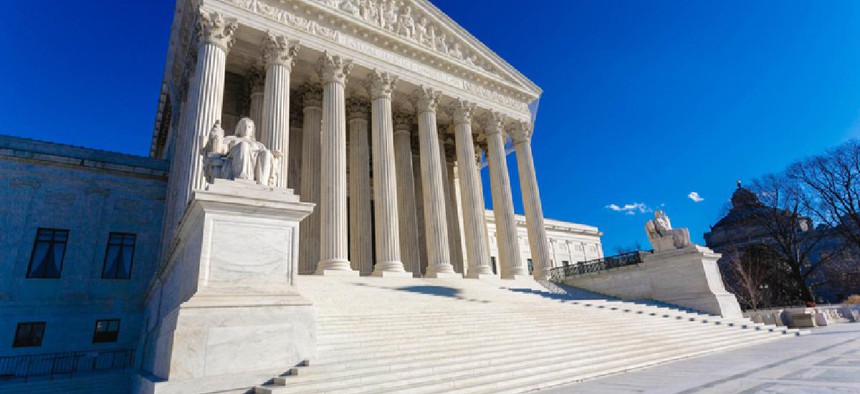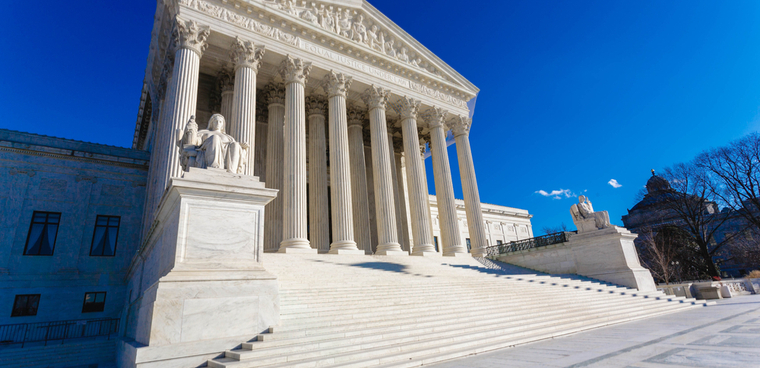Supreme Court narrows scope of hacking law, but questions remain

The Supreme Court's ruling on Thursday decided a police officer did not violate a 1980s anti-hacking law, but the court ultimately left open questions about the Computer Fraud and Abuse Act's applicability for other purposes such as cybersecurity research.

The Supreme Court on Thursday narrowed the scope of the Computer Fraud and Abuse Act in a 6-3 decision that leaves open questions about the law's application in the future.
The decision in Van Buren v. United States brought together a coalition of left-leaning and right-leaning justices. The case represents one of the most significant looks at the 1980s-era CFAA, which prohibits individuals from accessing a computer "without authorization or exceeding authorized access" and is a key statute in prosecuting computer crimes.
In the case that reached the high court Nathan Van Buren, a former police officer, was convicted of a CFAA violation after he was discovered using his official access to obtain information about an individual in exchange for a bribe. The case came to light in an FBI sting operation that targeted Van Buren. The ruling reversed a circuit court decision upholding Van Buren's conviction and remanded the case for further consideration in light of the new reading of CFAA.
The majority opinion from Justice Amy Coney Barrett narrowed the scope of what is meant by "exceeding authorized access" under the law. The court found that if a user has rightful access to a computer, they are not necessarily in violation of the law simply because they use the device for something other than its expressed purpose.
"The Government's interpretation of the 'exceeds authorized access' clause would attach criminal penalties breathtaking amount of commonplace computer activity," according to the court's opinion, written by Justice Amy Barrett.
The CFAA's vague wording has had technology groups worried for some time about how it could be used by some companies to penalize competitors and would-be competitor and to criminalize a range of benign activity, including cybersecurity research.
"When it comes to cybersecurity, there is good news and bad news," Harley Geiger, senior director of public policy at Rapid7, told FCW. "The good news is that security researchers would seem to have greater leeway to conduct research on computers or information to which they have authorized access, such as scraping data from publicly accessible websites even if the website's [terms of service] prohibits scraping or using the website information for security research.
Geiger added: "However, the ruling will also be perceived to exacerbate the 'insider threat' problem, such as employees misusing sensitive data which they are authorized to access. The ruling may well prompt renewed discussion about legislation to modify the CFAA to address this perceived insider threat issue."
The Electronic Frontier Foundation, which filed an amicus brief in the case, hailed the court's decision for making clear that a violation of a website's terms of service is not sufficient to constitute a violation under the CFAA.
"EFF has long fought to reform vague, dangerous computer crime laws like the CFAA. We're gratified that the Supreme Court acknowledged that overbroad application of the CFAA risks turning nearly any user of the internet into a criminal based on arbitrary terms of service," Andrew Crocker, a senior attorney at EFF, told FCW.
Other commentators noted that an overly broad reading of CFAA could expand the power of market leaders to quash would-be rivals.
"The concern that we raised in the brief and that we've had for a long time is that these sorts of laws that seem targeted at highly illegitimate activity are in fact being used to suppress competition and enable monopolization of digital markets," said Charles Duan, a senior fellow at the R Street Institute, who led the organization's amicus brief filing, told FCW in an interview on Thursday.


